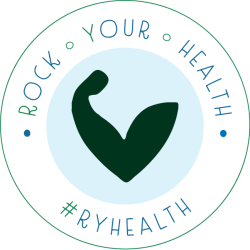Article, World Cancer Day
Flattening the Curve: Starting Early with Health Literacy to Combat Future Cancer Cases
In the realm of public health, the spotlight is increasingly turning towards childhood and adolescence health literacy, recognizing its pivotal role in shaping lifelong well-being.

In the realm of public health, the spotlight is increasingly turning towards childhood and adolescence health literacy, recognizing its pivotal role in shaping lifelong well-being. As we observe World Cancer Day on February 4th, the urgency of fostering health literacy from a young age becomes particularly pronounced. To truly flatten the curve in new cancer cases in adulthood, we must start early with health literacy.
World Cancer Day and the Importance of Early Health Literacy:
World Cancer Day serves as a poignant reminder that health literacy is not merely about understanding medical jargon; it is a gateway to a healthier future. Empowering children and adolescents with the knowledge and skills to make informed decisions about their health is a crucial step in preventing various health issues, including cancer, later in life.
Scientific Insights Supporting Health Literacy:
Numerous studies contribute to the growing body of evidence emphasizing the significance of childhood and adolescence health literacy:
World Cancer Day and the Importance of Early Health Literacy:
World Cancer Day serves as a poignant reminder that health literacy is not merely about understanding medical jargon; it is a gateway to a healthier future. Empowering children and adolescents with the knowledge and skills to make informed decisions about their health is a crucial step in preventing various health issues, including cancer, later in life.
Scientific Insights Supporting Health Literacy:
Numerous studies contribute to the growing body of evidence emphasizing the significance of childhood and adolescence health literacy:
- The International Journal of Environmental Research and Public Health (1) underscores the link between health literacy in adolescence and long-term health outcomes.
- The Robert Koch Institute (2) highlights the correlation between health literacy and obesity in adolescents, emphasizing the need for early intervention.
- A systematic review (3) delves into the psychosocial dimensions of health literacy in adolescence, revealing its broader impact on mental and emotional well-being.
- The European Journal of Psychological Assessment (4) sheds light on cultural and social factors influencing health literacy during crucial developmental years.
- Okan et al. (5) examined challenges and solutions in promoting health literacy during childhood and adolescence, providing valuable insights for effective strategies.
RYHEALTH Projects: A Comprehensive Approach to Health Literacy:
Linking scientific evidence with actionable initiatives, RYHEALTH, an EU-funded project, is at the forefront of empowering childhood and adolescence health literacy. The project encompasses four key initiatives, each addressing critical aspects of health literacy: physical activity, healthy nutrition, sustainability, and emotional resilience. These projects not only cater to the well-being of children and adolescents but also extend their impact to teachers and parents, recognizing their influential roles in shaping health behaviors.
As we navigate the complexities of health education, RYHEALTH stands as a beacon, advocating for the integration of health literacy into the “fabric” of childhood and adolescence.
Explore RYHEALTH's impactful projects in childhood and adolescence health literacy: RYHEALTH Projects
Author: Petra Thaller
Linking scientific evidence with actionable initiatives, RYHEALTH, an EU-funded project, is at the forefront of empowering childhood and adolescence health literacy. The project encompasses four key initiatives, each addressing critical aspects of health literacy: physical activity, healthy nutrition, sustainability, and emotional resilience. These projects not only cater to the well-being of children and adolescents but also extend their impact to teachers and parents, recognizing their influential roles in shaping health behaviors.
As we navigate the complexities of health education, RYHEALTH stands as a beacon, advocating for the integration of health literacy into the “fabric” of childhood and adolescence.
Explore RYHEALTH's impactful projects in childhood and adolescence health literacy: RYHEALTH Projects
Author: Petra Thaller
References
- International Journal of Environmental Research and Public Health, 2023
- Robert Koch Institute Study, 2022
- Bröder, J., Okan, O., Bauer, U. et al. Health literacy in childhood and youth: a systematic review of definitions and models. BMC Public Health 17, 361 (2017). https://doi.org/10.1186/s12889-017-4267-y
- European Journal of Psychological Assessment, 2022
- Okan O, Pinheiro P, Zamora P, Bauer U. Health literacy in childhood and adolescence: An overview and current state of research. Bundesgesundheitsblatt Gesundheitsforschung Gesundheitsschutz. 2015 Sep;58(9):930-41. German. doi: 10.1007/s00103-015-2199-1. PMID: 26133161.
